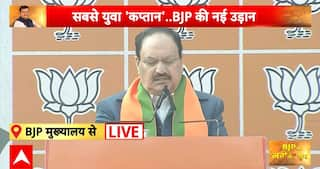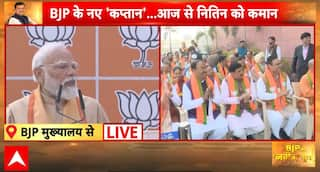Women’s Reservation: From Colonial Roots To Constitutional Progress

The 128th Constitutional Amendment Bill passed by both Houses of Parliament marks a significant event in the history of Independent India, being the world's largest democracy with a more than 700 million female population. With the President giving her assent, it is a law now and is a step towards making women equal partners in public spaces and challenging the patriarchal hierarchy in private and public spaces.
Under this law, women will constitute a critical mass that will have a greater voice in prioritising their interests in crucial areas of health and education and ensuring gender equality for having in place an effective democracy. Several questions arise regarding the history of women's reservation, the steps taken at the local and national levels in the past, and the challenges in effective implementation and possible ways forward.
Colonial Origins
Although constitutional measures in the form of Article 15(3) of the Constitution existed in the past that bestowed the power on the state to make special provisions for women, the need for a greater representation of women in the public sphere, specifically at the national level, continually arose. Historically, the possibility of women entering political life took shape in the early 20th century when the colonial state responded to Indian nationalism through political devolution by offering Indians a more significant role in governance through various means of nomination, reservation, and elections. It was in this context that the first women's organisation took shape. They brought forward the agendas of social reform by arguing for expanding women's voting rights and, at the same time, by standing in elections. The disadvantages, such as lack of economic autonomy, dependency, and constraints of marriage laws, mobilised the need for women to be represented in the legislature to provide for gender inequality and inclusion.
Steps To Facilitate at Local and National Levels
Even though the law to ensure 33 percent reservation for women in Parliament and state legislatures has taken a long time, the 73rd and 74th Amendments passed in 1993 introduced reservation of one-third of seats for women in panchayats and municipalities.
The Constitution also provides for reserving seats in the Lok Sabha and state legislative assemblies for Scheduled Castes (SCs) and Scheduled Tribes (STs) in proportion to their number in the population. The Constitution does not provide for the reservation of seats for women in the Lok Sabha and state legislative assemblies, as some members of the Constituent Assembly were opposed to reserving seats for women in legislatures for various reasons.
Even at the national level, several bills were brought in the past. To illustrate, the Constitution (81st Amendment) Bill, 1996, was reported by the Joint Committee but lapsed with the dissolution of the 11th Lok Sabha. Similarly, the Constitution (84th Amendment Bill), 1998 was presented in Lok Sabha on December 14, 1998, which lapsed with the dissolution of the 12th Lok Sabha, and the 85th Constitutional Amendment Bill, 1999 also lapsed similarly after being presented in the Lok Sabha. The last such attempt was made in 2008 by the Manmohan Singh government, which, after getting passed in the Rajya Sabha, lapsed in the Lok Sabha.
Key Aspects Of The Legislation
The Act seeks to reserve one-third of all seats for women in the Lok Sabha, the state legislative assemblies, and the Delhi Legislative Assembly. One-third of the seats reserved for Scheduled Castes and Scheduled Tribes shall be reserved for women of those groups in the Lok Sabha and the legislative assemblies. This reservation will be implemented only after a new Census and the delimitation process is undertaken, and will continue for 15 years and rotated after each delimitation exercise.
There are divergent views on the reservation policy, with the proponents stressing the necessity of affirmative action to improve the condition of women. Some recent studies on panchayats have shown the positive effect of reservation on the empowerment of women and the allocation of resources. Opponents of the policy, however, argue that the rotation of reserved constituencies in every election may adversely affect the incentive for the MPs to work for their constituency as they may be ineligible to seek re-election from the same constituency. The reservation should also have been extended to the Rajya Sabha and the legislative councils as the representation of women should be provided in both upper and lower houses of Parliament and state legislatures, it is being argued.
What Now?
As we move towards a law providing more extensive democratic representation to women, we should reflect and re-examine our ideas and beliefs to make the electoral presence of women effective in order to create a more egalitarian society. We need to work on ensuring the effective participation of women by addressing concerns of proxy participation of women, criminalisation of politics, and strengthening inner-party democracy, including reservation for women in political parties. So, the reservation for women provided by the 128th Constitutional Amendment Bill is certainly a step in the right direction in a representative democracy striving to achieve gender equality in all spheres of public life.
Abhinav Mehrotra is an Assistant Professor and Amit Upadhyay an Associate Professor at Jindal Global Law School, O.P. Jindal Global University, Sonipat, India.




























